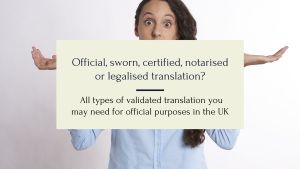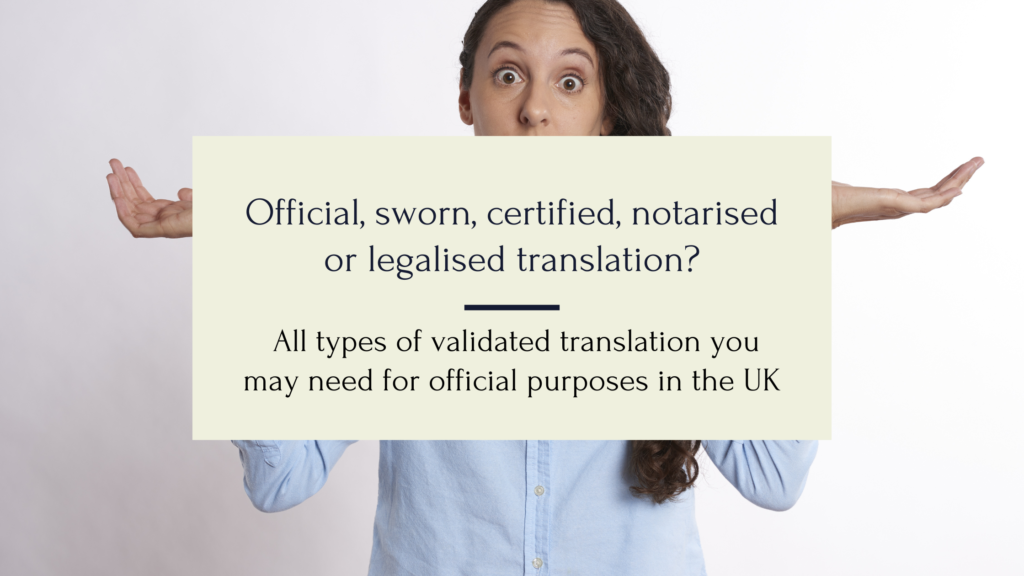
The different types of official translation you might need in the UK

In her previous article dedicated to the Baffling issue of translation certification in the UK, Sebina Zisa-Davies explained that a Certified or Official Translation in the UK is a translation accompanied by a statement ensuring its accuracy, as well as the translator’s credentials and contact details. This type of translation is used for formal and legal procedures. Additionally, she mentioned that since the UK is a common law country, there is no recognised “sworn translation” system. Therefore, certification for professional translators is not required. However, translations for official purposes can usually be “self-certified” by any practising translator.
Nevertheless, various levels of officialisation may be required for translations. These levels include notarised translation and affidavit, the Hague Apostille Convention, legalised translation, and sworn translation.
Here is the detailed information Sebina gives us!
Official translations and how to get them
The following table summarises the types of official translation. Let’s look at what each of these processes entails.
| What? | How? |
Notarised translation with affidavit : A notarised translation with affidavit is a certification for use outside the UK. | Translation and a signed statement of accuracy are presented to a Notary Public who stamps and signs them, creating an affidavit. The notary does not certify the accuracy of the translation, but that the translator swore to its accuracy. The notary’s fee is typically added to the cost of the translation. |
| Apostille: If you need a document to be recognised in countries that are part of the 1961 Hague Apostille Convention. | Your notarised translation may require additional steps. Documents must be apostilled by a legalisation office before translation. In the UK, the competent authority is the Foreign and Commonwealth Office (FCO). |
| Legalised translation: If your translation needs to be used in a non-Hague Convention country, you’ll need to have a legalised translation. | Only the consulate of the country where the translated document is to be used can perform this process. Legalisation only verifies the stamp’s authenticity, not the translation’s accuracy. |
| Sworn translation: If you are dealing with civil law countries like France, Spain, Germany, and Italy, there may be legal requirements for a translation to be sworn. | What this means is that a court in these countries may summon a category of screened and listed translators (i.e., sworn) to validate a text in a foreign language within a legal context. |
Conclusion
In a market with diverse minimum practice requirements and the availability of AI and machine translation tools, certification and formalisation are crucial. These processes help to identify translators and their credentials, ensuring accountability for their work. Furthermore, they provide a clear and concise understanding of the translation’s accuracy and legitimacy.
While certification does not guarantee translation quality, it helps to know you are placing your trust in qualified translators who can guide you through the process.
Therefore, if you need help understanding what level of officialisation your translation requires, please get in touch with us.
We are always happy to assist you and answer any questions you may have.



Leave a comment: